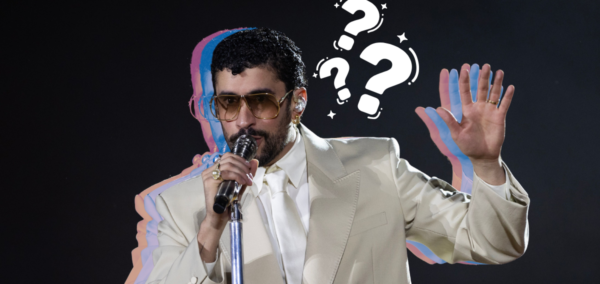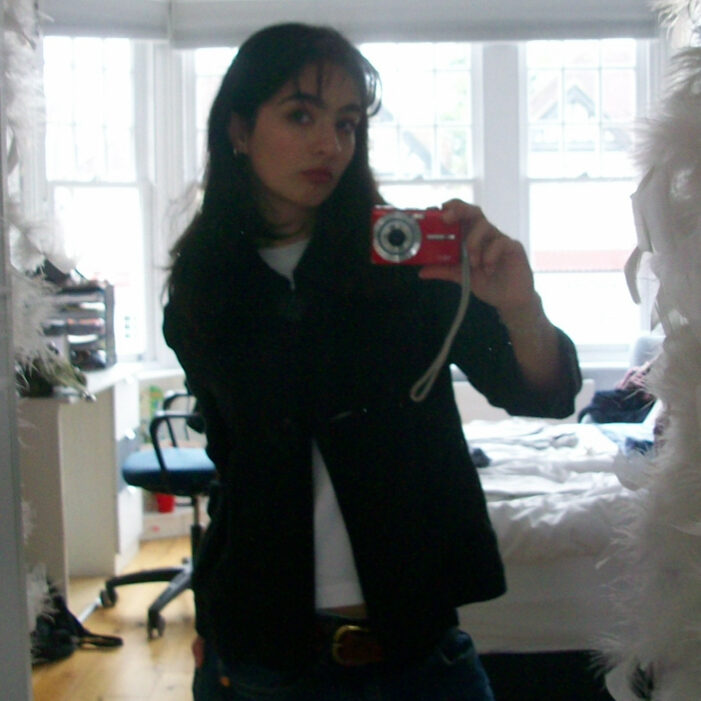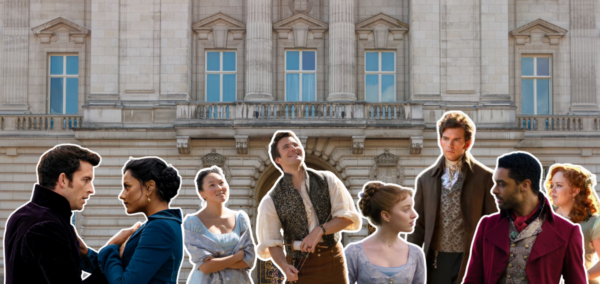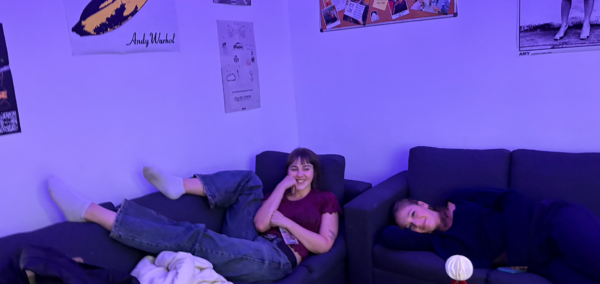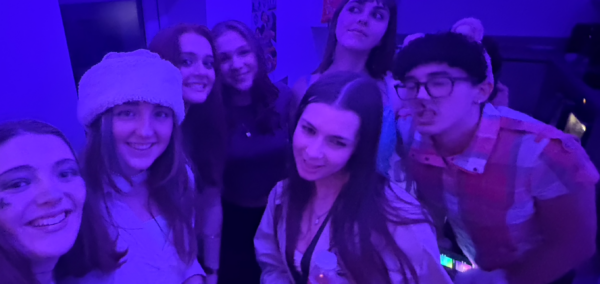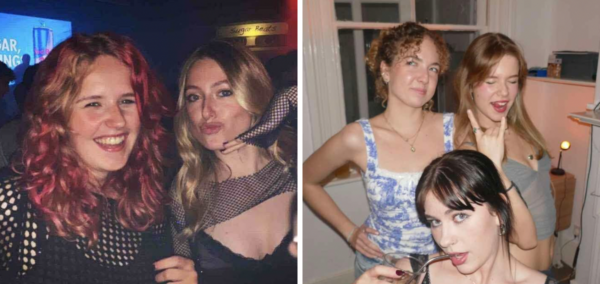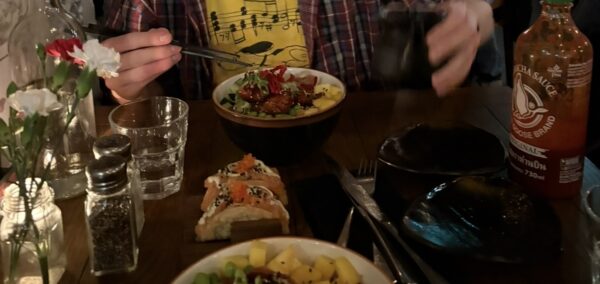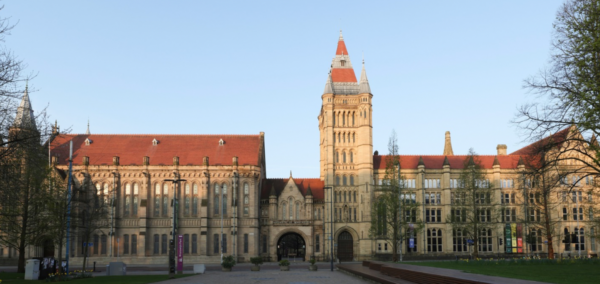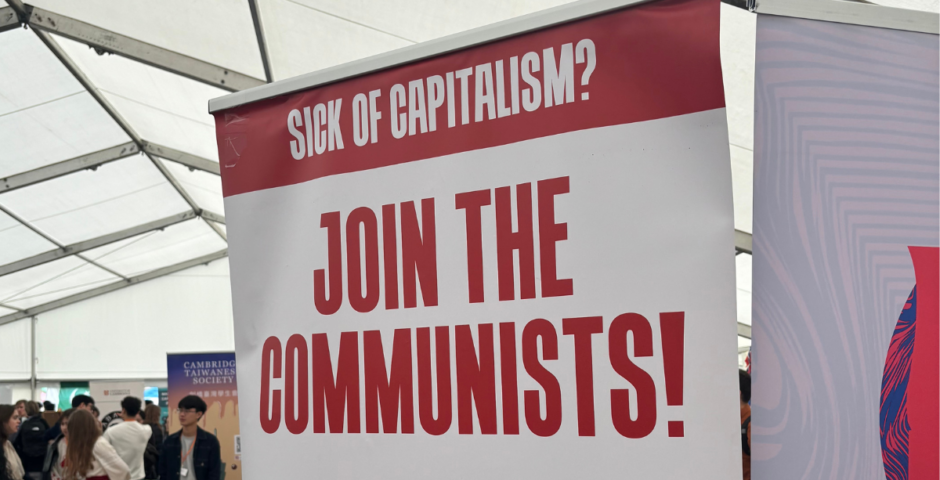
Interview with a Cambridge University Communist
A new series exploring political views all around Cambridge University.
When you think of Cambridge, what comes to mind? The majestic spires of King’s College Chapel? The bridge of sighs? Maybe a river punting scene with choral music in the background? Gowns sweeping across cobbled courts? All fair guesses. What you probably don’t picture is a 20-year-old revolutionary calmly explaining why Lenin was not a tyrant and why he’d rather nationalise your dorm room than sip champagne at a May Ball.
But that’s exactly what happened when I sat down with Rares, a now second-year HSPS student at Fitzwilliam College and a self-declared Marxist-Leninist, for an unexpectedly delightful deep-dive into political theory, student housing, Tinder bios, and communist life.
Let’s just say it was not your average student interview. It was more like a dialectical detour through history, ideology, and the modern university—with plenty of humour, wit and the occasional swipe at Keir Starmer.
The meeting:
I met Rares not at a protest or a pub, but at the bottom of a climbing wall. It was a quiet weekday evening, and our significantly more talented climbing partners were gracefully racing each other up the bouldering routes while the two of us lingered below, shouting some encouragement.
I can’t quite remember how we got from climbing holds to Marxist theory—blame the chalk fumes or the end-of-term delirium—but somewhere between discussions of The Tab’s latest pieces and whether Marx would enjoy bouldering (he wouldn’t, Rares assured me—too individualistic), he casually mentioned that he was a Marxist-Leninist.
What followed was one of the most entertaining and strangely compelling conversations I’ve had all year—and the interview that became this piece.
Love at First Marx:
“I was shocked,” I told him, “because I’ve never met a Marxist-Leninist in the wild before.”
Most Read
He grinned. “I get that a lot.”
For Rares, Marxism wasn’t a sudden epiphany but a slow-burn intellectual journey. “Marxism-Leninism appealed to me because, for the first time, I was presented with a very honest and very sober method for understanding the laws that govern society,” he explained.
And he wasn’t just talking about politics. “Wissenschaft—a system of knowledge. Marxism reveals the world in its totality, a world that is fundamentally estranged from itself. It’s an attempt to access the real.”
I must confess, reader, that ‘Wissenschaft’ has to win my award for the most intimidating word you can drop into casual conversation.
From Leftish teen to full fledged comrade:
“I wouldn’t pinpoint an age,” he said when I asked when this all began. “But I was always quite left wing.”
It wasn’t until Rares read Marx directly that things crystallised. “When I started reading Marx himself, rather than second-hand readings, I began to really comprehend what Marxism was.” That happened around age 15 or 16.
And no, he’s not just a Marxist theorist. “Marxism-Leninism is communism,” he clarified. “So yes, I’m a communist.”
Naturally, I asked whether he was involved in the Cambridge Communist Society.
“No,” he said, with an amused look. “There’s some… beef between me and them.”
Leaving me wondering what one first-year student can do within the space of a single year to claim ‘beef’ with the whole of the CCS.
We agreed to circle back.
The future of student politics:
“In ten years,” I asked, “what do you think student politics will look like? Red banners—or the rise of the right?”
Rares smiled, but shook his head almost immediately. “That’s a false dichotomy.”
He paused for a moment and then began to explain his reasoning, “The very framing accepts the horizon of politics as it’s structured today.”
“The right offers this kind of obscene enjoyment—resentment as identity, transgression as entertainment. And the left, especially student leftism, can become a sort of moralistic narcissism. You get woke capitalism, but with red flags.” He chuckled at that idea.
“You know, people champion the fact they drink fair-trade coffee and give grand speeches at the Cambridge Union on colonialism—and then submit their internship applications to McKinsey.”
It was funny because it was, well… true.
“So, in ten years…” Rares mused, “Student politics may still exist—but in a far weirder, more contradictory form… an alt-right influencer giving a TED talk on ‘post-woke masculinity,’ while a college socialist organises a ‘Decolonisation and Corporate Responsibility’ panel sponsored by Google.”
Judas in Red:
When I introduced the topic of contemporary British politics, Rares didn’t pause. “Biggest political op? Labour. By far,” he said. “I don’t even need to think about it.”
Wait—Labour?
“Yes. Because betrayal wounds deeper than enmity. The Tories, at least, are honest in their contempt. Labour cloaks its service to capital in the language of solidarity, while waging war against its own base.”
He likened Labour to Judas, quoting George Galloway: “Wolves in sheep’s clothing.”
“That kind of betrayal—when it masquerades as hope—is the greatest poison to any labour movement, in Britain or anywhere.” A harsh judgment, perhaps—but you can’t deny the poetry.
Cambridge housing, but make it socialist:
If he could nationalise one thing at Cambridge, what would it be?
Without hesitation: “Accommodation.”
“The collegiate system enables a patchwork of inconsistent rents and conditions, which are justified by opaque internal budgets and bureaucracy. It’s all wrapped in this veil of tradition and the prestige that the game offers. That’s the reality behind all of the flipping gowns and traditions.”
“Are you not a gown fan?” I asked with my eyebrows raised.
“No, I am”, he said, laughing.
“But, Students pay hundreds a week just for the proximity to this prestige,” he continued.
“Students should not be treated as a revenue stream. Education requires security, and the commitment to an intellectual life requires stability. No one should have to pay what is essentially tribute to a landlord, whether it’s college or private”
The Cambridge Marxist ccene:
So, what’s the Marxist scene at Cambridge actually like?
“Theatrical spectacle,” he sighed. “They sell newspapers in the rain and denounce each other for ideological impurity, but they’re totally disconnected from the working class. It’s more liberal than left-wing.”
His verdict?
“They don’t want to change society. They want to preserve their fantasy of revolution while planning their future in the civil service.”
“Any real revolution must begin where the working class is—not with slogans about Stalin.”
A Christian Communist?
Yes, Rares is also an Orthodox Christian. And yes, he knows that’s an interesting and seemingly antithetical combination.
But to him, Marxism isn’t inherently atheistic. “The USSR was secular, not anti-religion. They only wanted religion to be a private affair.”
He argued the Russian Orthodox Church had been a mouthpiece for the Tsarist regime, not a vessel for spiritual truth. “Its banning was a good thing—it broke a pillar of reactionary power.” Then further claiming, “It was not an honest kind of commitment to God. It wasn’t that at all. It served to justify and legitimate the exploitation of a huge majority of the people in Russia.”
When I offered up Marx’s famous belief that religion was the opiate of the masses, to question this view, he offered a fresh take.
“Opium, at the time, was a medicine. It dulled the pain. Marx wasn’t condemning religion—he was diagnosing it.”
The Marxist Horseshoe:
What’s the funniest feedback he’s ever received?
“Someone said I’m so far left I sound far right.”
“It’s a weird horseshoe theory thing. But I always remind people that my views are historically left-wing. I belong to the classical left—the one that wanted to overthrow monarchies.” He thinks the modern political spectrum has lost its roots. “Left and right have been warped beyond recognition.”
If you could ask marx one question…
“In a world where commodification extends to identity, desire, even descent—where is the revolutionary subject?”
‘Lenin Wasn’t a Tyrant’
I was intrigued as to how Rares would excuse Lenin’s actions in the context of the modern day.
“I don’t think I would excuse them.” He said, “I think I would historicise them.”
He made it very clear he doesn’t think that Lenin “descended from Mount Olympus as a vessel of socialist virtue.” Rather than he “emerged from the crucible of civil war, of imperial siege, and the party that had to govern a state before it could inherit a stable society.”
He then argued that “to expect perfection and purity from a revolutionary leadership is a liberal fantasy” and that Lenin’s errors “were not those of a tyrant. They were those of a leader who was forced to translate theory into practice when the rest of the world was bent on the destruction of the Revolution.”
There’s a lot you could’ve picked out there to follow up on, but my immediate question was:
“So, you would say that Lenin is not a tyrant?”
“No, he’s absolutely not.”
I pressed a little further, asking with a slight air of disbelief, “Then how do you defend Lenin’s decision to dissolve a democratically elected government? See, that’s my definition of a tyrant, an unelected, oppressive official seizing power.”
Yet, according to him, the Constituent Assembly was outdated by the time it met. “It had legality, but not legitimacy. The Soviets were the living expression of a new class power. To preserve the Assembly would have been to subordinate the revolution to an institution unfit to carry it forward.”
I pushed harder—after all, wasn’t that… still a dictatorship… with extra steps?
“It wasn’t between democracy and dictatorship,” he claimed.
“It was between competing forms of power, and only the Soviets had real support from workers and soldiers. Democracy isn’t just elections; it’s also power that functions.”
What’s next for this Cambridge Communist?
“I honestly have no idea,” he admitted when I asked about post-university plans.
He’s not scheming for power (at least not yet). “We’ll have to see,” he said with a grin.
But if his clarity of thought, conviction, and unexpected humour are any indication, the revolution—should it come—may well start in Fitzwilliam College
Final thoughts: The Cambridge paradox
I’ll be honest: I don’t think communism in practice could ever truly work. I believe it relies on a view of human nature that’s fatally optimistic. People are not blank slates; I think they’re driven by self-interest, hierarchy and greed.
The Bolsheviks didn’t herald a worker’s utopia—they seized power in the chaos of a crumbling empire, suppressing rivals and dismantling democracy in favour of one-party dominance. In my mind, that’s not a revolution of the people; that’s opportunism masquerading as ideology.
I would say that Lenin was not a misunderstood pragmatist. He was a ruthless tactician who helped lay the foundation for totalitarianism. Marx may have been a brilliant thinker, but his ideas inspired regimes that led to famine, censorship, and repression on a staggering scale. These aren’t the men I’d choose to look up to—not in history, and certainly not in the political present.
Yet, sitting across from Rares in the courtyard of a college built by a monarchy he disagreed with, surrounded by the gilded trappings of an elite institution, I found myself impressed. His worldview may not convince me, but it’s internally coherent, rigorously defended, and—perhaps most refreshingly—self-aware. He genuinely believes in what he’s saying, and he’s spent the time to understand it. That, in an age of detachment and recycled talking points, is rare.
At the end of our conversation, we walked out into the dusk-lit courts of King’s College so I could show him the chapel. In the distance, someone in a gown was hurrying to a formal dinner.
Cambridge has always been full of contradictions—so maybe it makes sense that Lenin found a fervent defender beneath its spires.
Are you a Cambridge student? Do you want to be interviewed about your political opinions? Get in touch with The Tab on our Instagram page! Searching for young future politicians from all parties and opinions to be interviewed now!









